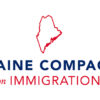U.S. Loses Talented Neurologist to Europe Because of Complicated Immigration Policies
Date: April 20, 2015
Paulo Fontoura, an American-educated neurologist, found he could more easily settle abroad in Switzerland than remain in the United States. A native of Lisbon, Portugal, Fontoura originally came to the United States in 2000 to study neuroimmunology as a postdoctoral researcher at Stanford University. While there, he helped develop a DNA-based vaccine that his team thought could help strengthen immune systems compromised by multiple sclerosis, with fewer side effects than the typical treatments – a product so promising it became the basis for a startup put together by several of his lab colleagues. Fontoura estimates that the company, Bayhill Therapeutics, employed about 70 people during its most successful period. It also raised more than $50 million in venture capital financing and, in 2009, secured a deal worth up to $325 million to further develop a potential treatment for type 1 diabetes with the pharmaceutical giant Genentech.
But even such successes didn’t allow Fontoura to bypass some of the most basic visa headaches. Before he even arrived in the United States he had problems: His J-1 visa took longer to get than expected, and he missed his Stanford start date by two months, potentially jeopardizing his position. Once he got to America, his visa had to be renewed every year, a process that came with its own cumbersome hassles. “Is the visa system conducive to helping people stay and work in the U.S.?” Fontoura asks, “I would definitely say it isn’t.” Three years after landing at Stanford, Fontoura returned home. He says such issues were one of the factors that drove that move.
Fontoura, however, quickly regretted his decision. He tried to pursue the same sort of cutting edge clinical research in Portugal, but with sparse funding available for such work, he found the climate there “very, very difficult.” Two years later, he returned to Stanford for several months as a visiting professor, once again joining the university’s state-of-the-art multiple sclerosis lab. That work led to his being approached by Hoffmann-La Roche Pharmaceuticals about a job conducting research in their Palo Alto office. Although conversations were going well, Fontoura says the firm cut his interviews short when officials there realized he didn’t have an H-1B visa, which would have made it hard for him to start the job when he was needed. At that phase in his career, Fontoura says, running up against the U.S. immigration barrier was a “major disappointment.”
Things didn’t all turn out badly in the end, though. A year and half later, Roche approached Fontoura and offered him a position in their office in Basel, Switzerland. He now heads the company’s Clinical Department and used to run the translational research division, or clinical research arm, where he oversaw a staff of 30 scientists. He has worked with his teams on nine early stage chemical compounds, which Fontoura believes could develop into drugs used for a variety of diseases, including schizophrenia, Alzheimer’s disease, and autism. As a citizen of the European Union, settling in his new home was incredibly simple, says Fontoura. All he had to do was register with the local authorities, a process that took less than an hour. “It couldn’t have been more different than what I’d faced in America,” he says.


